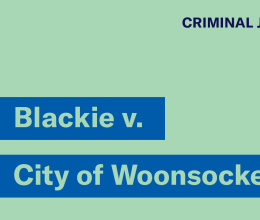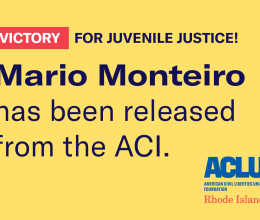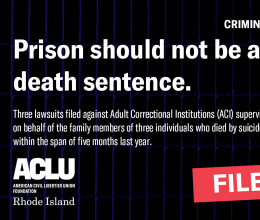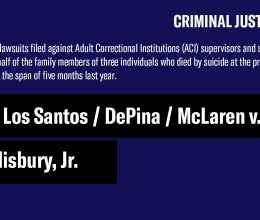The Rhode Island ACLU has filed a lawsuit in Superior Court against the state Department of Health (DOH) for making it more difficult for patients with debilitating medical conditions to participate in the state’s medical marijuana program. The suit, filed by RI ACLU volunteer attorney John Dineen, was brought on behalf of the Rhode Island Patient Advocacy Coalition, the Rhode Island Academy of Physician Assistants, and an individual whose application to participate in the medical marijuana program was denied by the DOH under the new policy.
For the past six years that the medical marijuana law has been in effect, the DOH has acknowledged that physicians, registered nurse practitioners (RNPs) and physician assistants (PAs) can certify that a patient has a debilitating medical condition that qualifies him or her for participation in the medical marijuana program. They have been able to do so for patients with whom they have a bona fide practitioner-patient relationship and have completed a full assessment of their medical history. In August, however, DOH Director Michael Fine summarily reversed course, issuing a memo that only certifications signed by physicians would be accepted. The new policy was implemented without any public notice or input, and was applied to deny applications that had been pending for months. For example, plaintiff Peter Nunes, Sr. applied for the program in June, but his application was held up until September (despite a statutory obligation that applications be processed within 35 days), when the DOH denied him his medical marijuana card because his certification had been signed by an RNP.
The new restriction on the number of medical professionals who can make certifications has serious consequences for some patients, according to the plaintiffs. For example, veterans whose physicians work at the VA cannot obtain certifications from their federally-employed doctor. Some other physicians, fearful of the publicity, stopped issuing certifications after a list of doctors who had signed the forms was made public two years ago. In addition, more and more patients rely on RNPs and PAs, who are authorized to write prescriptions, to manage the treatment of their chronic conditions. The new DOH policy, which the ACLU claims is contrary to law, forces these patients to see or form a new relationship with a physician, which is unaffordable for some patients and delays access to the medical marijuana program for others.
Plaintiff Nunes is considered fully disabled by the Social Security Administration, and currently takes potentially addictive prescription pain medication to deal with acute and chronic neck and back pain. He and his practitioner believe that the use of medical marijuana would be safer and more effective. However, in order to qualify under the new policy, he would need to find and then wait to establish a formal practitioner-patient relationship with a new physician, the fee for which would not be covered by his medical insurance.
The ACLU lawsuit makes a number of legal claims. Procedurally, the suit argues that the DOH violated the state’s Administrative Procedures Act when it adopted the new policy without going through a formal rule-making process to receive public input. Substantively, the suit argues that the policy violates the medical marijuana statute itself, in conjunction with other laws that specifically give RNPs and PAs the authority to sign medical certifications to the same extent as physicians. In fact, that had been DOH’s position for six years until this sudden change in policy was announced.
The suit seeks a court order declaring the Department’s recent actions illegal and requiring the issuance of registration cards to Nunes and to similarly-situated patients whose qualification for participation in the medical marijuana program has been properly certified by an RNP or PA.
Additional Links
- Statements from News Conference Participants
- Seven Years of Executive Agency Resistance to Rhode Island Medical Marijuana Laws








